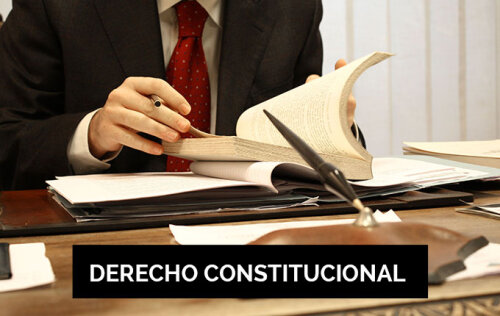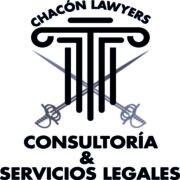Best Renewable & Alternative Energy Lawyers in Colombia
Share your needs with us, get contacted by law firms.
Free. Takes 2 min.
Or refine your search by selecting a city:
List of the best lawyers in Colombia
About Renewable & Alternative Energy Law in Colombia
Renewable and alternative energy has become a crucial part of Colombia's national development as the country seeks to reduce its dependence on traditional fossil fuels, combat climate change, and promote sustainable growth. The Colombian government has implemented a series of laws and incentives to encourage the production and use of renewable energy sources such as hydroelectric, wind, solar, and biomass. These efforts are part of broader international commitments and respond to the growing demand for clean energy at both domestic and global levels. Legal frameworks ensure that renewable energy projects are regulated, incentivized, and integrated into the national energy grid in compliance with environmental and economic standards.
Why You May Need a Lawyer
Individuals, businesses, and investors may need legal assistance in the field of renewable and alternative energy for a wide range of reasons. Common situations where legal help is essential include negotiating contracts for land use or energy sales, ensuring regulatory compliance, securing permits and licenses, navigating complex national and local environmental regulations, participating in public tenders or government incentive programs, and addressing disputes with authorities, partners, or communities. Additionally, international investors may seek guidance to understand Colombia’s legal landscape and risk management. A specialized lawyer can provide expert advice tailored to the client's interests, help avoid legal pitfalls, and protect investments throughout every stage of a renewable energy project.
Local Laws Overview
Colombia’s legal framework for renewable energy is robust and forward-looking, with several key laws and regulations shaping the sector. Law 1715 of 2014 is the cornerstone, promoting the integration of renewable energy sources into the national grid and providing fiscal incentives such as tax deductions, exemption of VAT and customs duties, and accelerated depreciation for renewable energy investments. The law also creates mechanisms for distributed generation, energy storage, and the use of unconventional sources of energy. Additional regulations from the Ministry of Mines and Energy set technical standards and establish the process for obtaining permits and licenses. Environmental licensing, required for large-scale projects, is overseen by the National Authority for Environmental Licenses (ANLA). Colombia has also encouraged investment through clean energy auctions, fostering competitive processes for awarding renewable energy contracts. Local governments may impose additional requirements, especially regarding land use and community engagement.
Frequently Asked Questions
What types of renewable energy are most common in Colombia?
Hydroelectric, solar, wind, and biomass are the most developed renewable energy sectors in Colombia, with hydroelectric power historically dominating the generation mix. However, there is rapid growth in solar and wind projects, especially in the Caribbean and La Guajira regions.
What incentives exist for investing in renewable energy projects?
Investors can benefit from tax deductions, accelerated depreciation, VAT and customs exemptions, and other financial incentives established in Law 1715 of 2014 and subsequent regulations. Clean energy auctions also offer additional opportunities for long-term contracts.
What permits are required to start a renewable energy project?
Projects typically require an environmental license from ANLA for large-scale developments, land use approvals from local authorities, connection permits from the electricity grid operator, and authorization from the Ministry of Mines and Energy.
Can foreign investors participate in Colombia’s renewable energy sector?
Yes, Colombia welcomes foreign investment in renewable energy. There are no prohibitions or restrictions specific to foreign ownership in this sector, although all investors must comply with national and local laws.
What is the process for connecting a renewable energy project to the national grid?
Connection requires technical approval by the grid operator, compliance with technical standards, and, if applicable, participation in energy auctions or contracts with offtakers. The process is regulated by the Ministry of Mines and Energy and the Energy and Gas Regulatory Commission (CREG).
How are environmental impacts assessed for new projects?
Environmental impact assessments (EIAs) must be submitted for large-scale projects. ANLA and other regional authorities review the EIA as part of the environmental licensing process to ensure the protection of natural resources and affected communities.
Are there specific laws protecting community or indigenous rights in relation to energy projects?
Yes, Colombian law requires prior consultation (consulta previa) with indigenous and Afro-Colombian communities if a project may affect their land or rights. This process is mandatory and overseen by the Ministry of the Interior.
What happens if a project fails to comply with environmental or energy regulations?
Non-compliance can result in administrative sanctions, financial penalties, suspension or revocation of permits, and potential criminal liability in severe cases. Legal counsel is crucial to prevent and address such issues.
How long does it take to develop a renewable energy project in Colombia?
Timelines vary based on the type and size of the project, location, and permitting requirements. On average, project development may take from one to three years, with legal and regulatory processes being a significant factor.
Can individuals or small businesses generate their own renewable energy?
Yes, recent regulations promote distributed generation, allowing individuals and small businesses to produce and use energy from renewable sources and even sell surplus electricity back to the grid, subject to specific requirements and procedures.
Additional Resources
Several organizations and governmental entities are essential sources of information and support for those interested in renewable and alternative energy in Colombia:
- Ministry of Mines and Energy (Ministerio de Minas y Energía)
- National Authority for Environmental Licenses (Autoridad Nacional de Licencias Ambientales - ANLA)
- Energy and Gas Regulatory Commission (Comisión de Regulación de Energía y Gas - CREG)
- National Planning Department (Departamento Nacional de Planeación - DNP)
- Colombian Renewable Energy Association (SER Colombia)
- Colombian Chamber of Energy (Cámara Colombiana de la Energía)
- Regional and local environmental authorities
- Chambers of commerce and business associations focused on energy and sustainability
Next Steps
If you are considering a renewable or alternative energy project in Colombia, or if you need advice about compliance, permits, or resolving disputes, consulting a lawyer with expertise in this area is highly recommended. Start by identifying your specific legal needs and gathering relevant documentation. Reach out to legal professionals who specialize in energy or environmental law, and consider seeking references from industry associations or governmental bodies. A knowledgeable lawyer can guide you through regulatory processes, help negotiate contracts, and ensure your project complies with all laws and requirements, safeguarding your investment and long-term interests in the Colombian renewable energy sector.
Lawzana helps you find the best lawyers and law firms in Colombia through a curated and pre-screened list of qualified legal professionals. Our platform offers rankings and detailed profiles of attorneys and law firms, allowing you to compare based on practice areas, including Renewable & Alternative Energy, experience, and client feedback.
Each profile includes a description of the firm's areas of practice, client reviews, team members and partners, year of establishment, spoken languages, office locations, contact information, social media presence, and any published articles or resources. Most firms on our platform speak English and are experienced in both local and international legal matters.
Get a quote from top-rated law firms in Colombia — quickly, securely, and without unnecessary hassle.
Disclaimer:
The information provided on this page is for general informational purposes only and does not constitute legal advice. While we strive to ensure the accuracy and relevance of the content, legal information may change over time, and interpretations of the law can vary. You should always consult with a qualified legal professional for advice specific to your situation.
We disclaim all liability for actions taken or not taken based on the content of this page. If you believe any information is incorrect or outdated, please contact us, and we will review and update it where appropriate.
Browse renewable & alternative energy law firms by city in Colombia
Refine your search by selecting a city.















